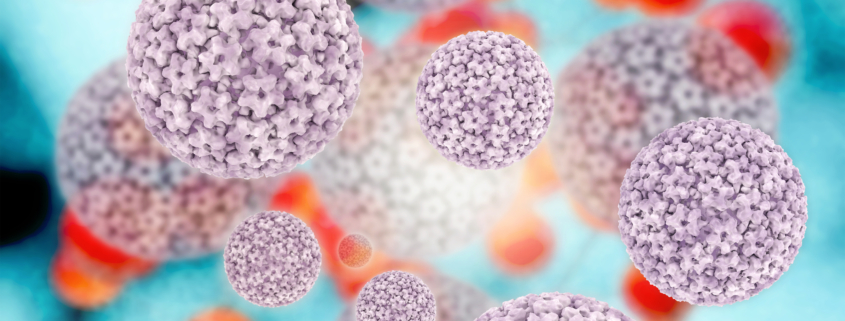WHO recommends one-dose HPV vaccination for girls
The World Health Organisation (WHO) recommends the one-dose HPV vaccination of girls and women up to 21 years of age instead of the current two-time vaccination. The WHO wants to increase the vaccination rate in the fight against cervical cancer. In principle, we welcome this plan, but we also have reservations regarding the new recommendation[1].
The fact is, cervical cancer is caused by human papilloma viruses (HPV). While not every HPV infection develops into cervical cancer, there are certain high-risk HPV types. They favour the malignant changes in the cells. There is an effective vaccination against some of these high-risk HPV types. In Germany, the Standing Committee on Vaccination (STIKO) recommends two doses for girls and boys aged 9-14 for sufficient vaccination protection. Those older than 17 should even be vaccinated three times. HPV is sexually transmitted. Condoms do not provide sufficient protection because the viruses are found throughout the intimate and anal areas. For this reason, immunisation is advisable before the first sexual experience.
HPV causes cancer in men and women
It is also a fact that cervical cancer is not the only cancer that can be caused by HPV. In addition to cervical cancer and cancer of the vulva and vagina, an HPV infection can also lead to malignant cell changes in the mouth and throat area, at the anus and also on the penis. Genital warts are also caused by human papilloma viruses. These are harmless, but very unpleasant. Men can not only transmit HPV, but also suffer from HPV-related cancer themselves. In Germany alone, this affects about 1,600 men a year.[2] HPV vaccination also protects against these cancers.
HPV vaccination: useful for girls and boys
Since HPV can cause cancer in both men and women, it is surprising that the WHO focuses its recommendation on cervical cancer – that is, on women. Especially since it also makes sense in the fight against cervical cancer to get boys on board with the vaccination. After all, they can infect their partners with HPV infection as carriers. Since 2018, the Standing Commission on Vaccination in Germany has recommended vaccination against human papilloma viruses for boys aged nine and older.
Dr Cornelia Hösemann (member of the Saxon vaccination commission) takes a very similar view in an interview with the German TV station MDR[3]. In her eyes, the WHO recommendation is a step backwards, because in her opinion, all sexes should be vaccinated from the age of nine. She would like to see a vaccination rate of 80-90 per cent to achieve collective protection. According to a survey by the Robert Koch Institute, the vaccination rate in Germany in 2015 was only around 45 percent[4] among 17-year-olds. This is the age group in which immunisation should ideally already have been completed.
Making HPV vaccination easier – for everyone
The WHO relies on data that show that a single vaccination against HPV ensures full vaccination protection. A single vaccination would mean lower costs, fewer resources, and it would also be easier to administer the vaccination.[5] Thus, access to HPV vaccination would be more low-threshold.
For the time being, the WHO recommendation is only a recommendation. The implementation must be checked by the individual countries themselves. If the vaccination rate can be increased by a simplified HPV vaccination scheme, this is to be welcomed, but then all sexes should be included.
Literature sources:
[2] Robert Koch Institute (RKI)

